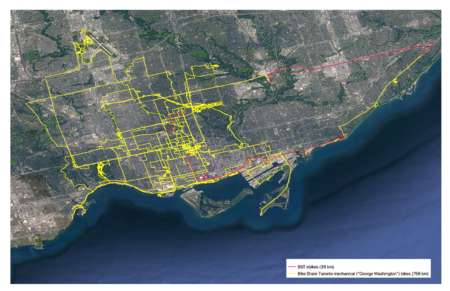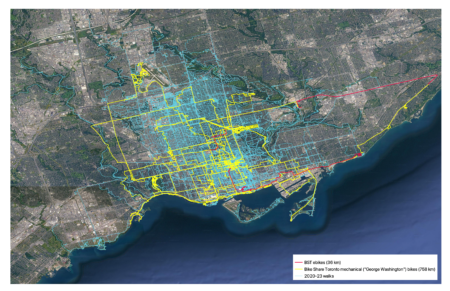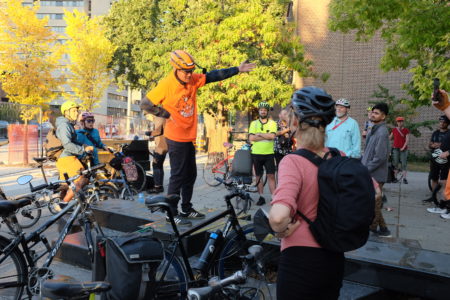Disposable plastic dissection kits
Just over one month with Bike Share Toronto
Toronto pot shop
St. Augustine’s Seminary of Toronto
Toronto Critical Mass for September 2023
Toronto Critical Mass for September 2023 assembling
Bike Share Toronto on campus at U of T
Tree-shaded campus boulevard
Storr on elite overproduction
Elsewhere, Goldstone finds a predictable precursor to societal collapse to be ‘elite overproduction’ — when too many elite players are produced and have to fight over too few high-status positions. A moderate level of overproduction is beneficial, as it creates healthy competition and increases the quality of the elites that do end up occupying the most prestigious positions, in government, media, the legal world, and so on. But too much overproduction leads to resentful cadres of failed elites forming their own status games in opposition to the successful. They begin warring for status, attacking the establishment, which contributes to its destabilization. Goldstone finds these dynamics in the years leading up to the English Civil War, the French Revolution and crises in China and Turkey. Once again, we find chaos and history being made in the aftermath of the game’s expected rewards failing to pay out.
Storr, Will. The Status Game. William Collins Books; London; 2021. p. 115
Related:










